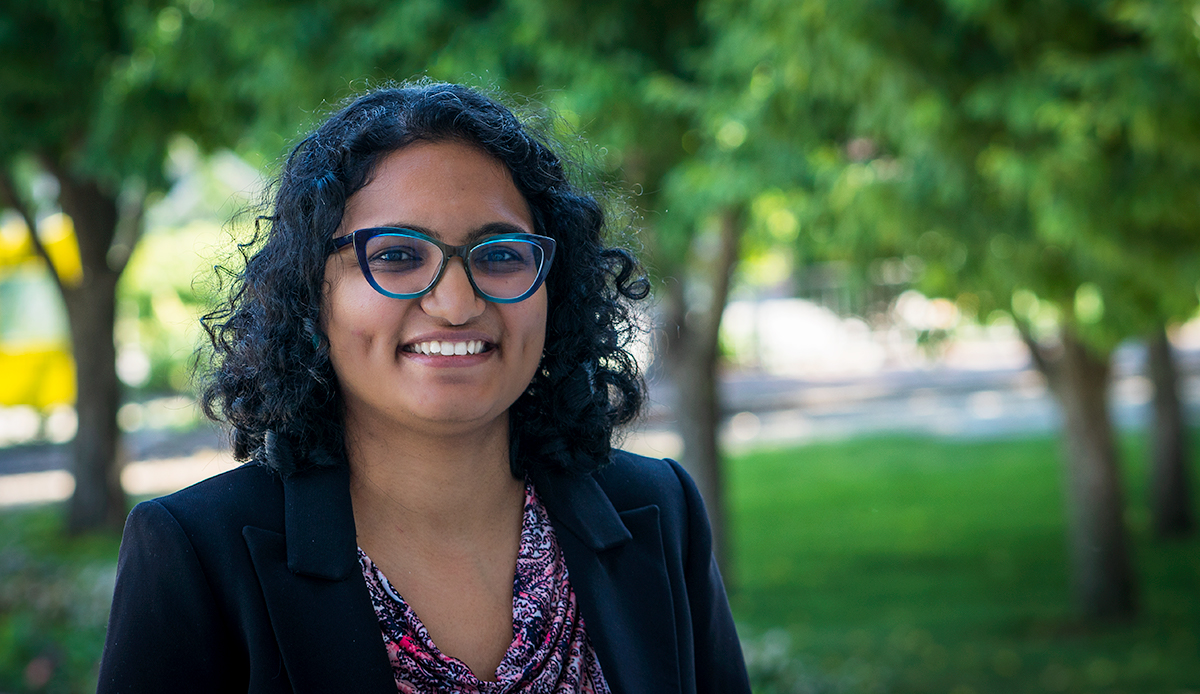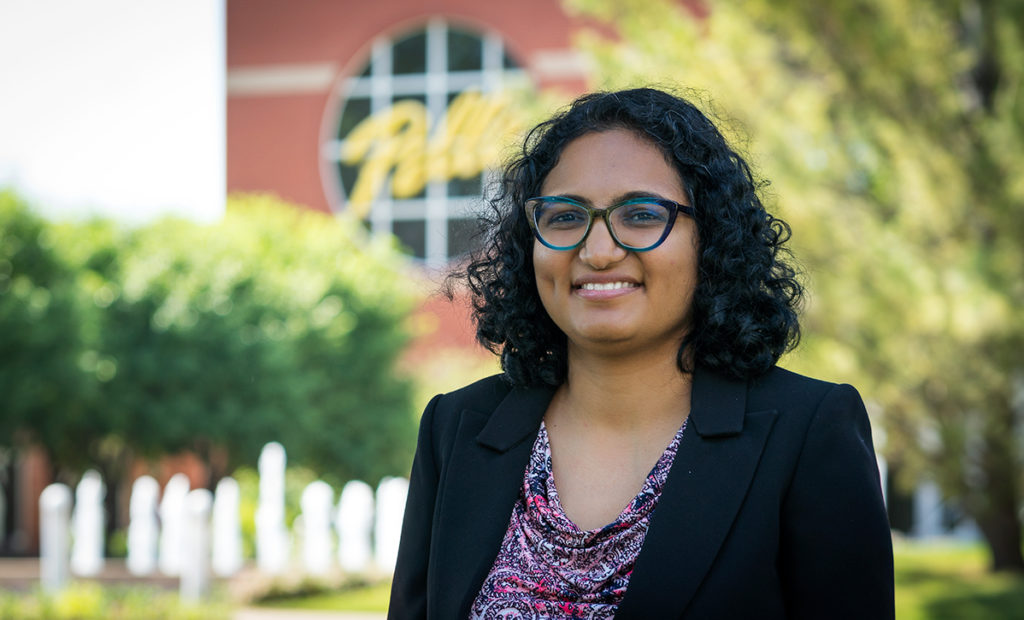
CATALYSTS INTERVIEW: Varsha Deshmukh-Jayade
Varsha Deshmukh-Jayade, CSSBB, is an Engineering Tech Lead at Pella Corporation. Varsha’s journey began overseas, but she now calls Iowa her home for its family-oriented culture. As a leader at Pella Corporation, Varsha prioritizes diversity in thought. Her drive to create a culture of creativity and professional growth has proven successful both at Pella and in her mentoring initiatives. Varsha’s insight into Iowa’s manufacturing industry and its impact on Iowa tech originate from STEM education and diversity efforts.
Can you give us an overview of your career and what brought you to Iowa?
About ten years ago, I came to the U.S. for higher education and earned a Master’s in Industrial Engineering. I’ve been working in the manufacturing industry for about ten plus years in many different manufacturing specialties, including supply chain technology, shop floor, and international supplier developments. Recently, I set up new manufacturing plants and technology implementation in automation and robotics. After learning about the manufacturing industry and seeing different parts of the U.S., it was great to come to Iowa and settle. We have been in Iowa for seven-plus years. Iowa’s family-oriented culture made us feel at home.
How has your career evolved in manufacturing as technology has evolved?
I started in the field of quality at a small manufacturing company. Back then, I quickly realized that I need to be hands-on with data, understand the data quickly and see trends and patterns. Data science was not a term back then. I would look for trends, quality defects, products, and processes, it was more after the fact, taking corrective action. Now the focus is starting to move from corrective to predictive analytics. Technology has helped me tremendously to shift my focus by utilizing machine learning and building that into continuous improvement.
That shift has helped me shape my career and evolve manufacturing over these last ten years. I would say we are still in the early phase of predictive analytics in manufacturing. We will be utilizing data science and technology in almost every part of manufacturing in the coming future. My career has evolved with manufacturing quickly, from Excel to utilizing automation, data analysis, IoT, and machine learning.
Our societal understanding of the dimensions of gender has changed. But those societal understandings still feed into our bias. Now, our understanding is evolving, and we’re taking steps to make more accurate and representative data.
Technology has helped me tremendously to shift my focus by utilizing machine learning and building that into continuous improvement.
How do you challenge and motivate organizational culture change at Pella?
For me, organizational culture doesn’t mean a strategy, rules, or policies of that organization. It means the unwritten rules that govern that team collaboration or execution and motivation of the team. Challenging the current culture is a big task at hand for individuals and leaders of the organization. I believe in servant leadership, building collaboration with trust and respect. That belief enabled me to pivot the culture and implement world-class manufacturing methods. I have utilized respect/trust to challenge the culture and influence people by getting them excited about the future.
What are some tried and true principles that you feel are translatable throughout your career path? What have you always stood for and what has always gone with you?
I would say two main things have stood out for me. The first is building trust and a relationship with my friends/colleagues. Those long-lasting relationships have shaped my career and helped me enjoy this journey and the different manufacturing fields. It has translated in my career from many different parts of manufacturing.
The second part that has shaped my career path is learning new things, I ask many questions that have helped my growth. My motto for the last ten years has been, “don’t afraid to experiment with different ideas, and learn from mistakes.”
How do you encourage innovation and idea-sharing within the Pella community?
I have seen that innovation is fostered by collaboration with diverse groups of people and encouraging everyone to ask questions and not be afraid of mistakes. I always utilize that in my conversations. I ask many different questions, which build confidence and self-trust in others by fostering curiosity.
Motivation comes from experimenting together, which builds upon the ideas, and throughout I’ve seen that one person will have a great idea or many different great ideas. However, it takes a village of people to convert those ideas into reality. Keeping an open mindset and learning from each other helps to build strong teams.
I have utilized this approach to mentor and coach younger generations. I work with ISU students and Pella Corporation interns to build a community that brings innovation and develops idea-sharing within that community.
What was your passion growing up and what did you envision for your career?
Growing up, I always wanted to be like my father. He has grown his career in the engineering field so that was my passion. I wanted to help my relatives and friends grow positively in their lives, just as my dad has helped others to grow with him.
It gives me great encouragement when I see the new generation coming into the field, and I get to see them shine. That passion has fueled me to solve different problems and have a fresh perspective on current reality because change is constant.

Challenging the current culture is a big task at hand for individuals and leaders of the organization. I believe in servant leadership, building collaboration with trust and respect. That belief enabled me to pivot the culture and implement world-class manufacturing methods.
Tell us about any mentors you may have had throughout your career and how they influenced your career?
I’ve been very fortunate to have many mentors and managers who have helped shape my career. The key thing that I would say is communicating with my mentors and continuously seeing how their journey has helped my thought process. My mentors have challenged my self-development, encouraged me to explore new avenues, and be in an uncomfortable zone. My mentors have been my guiding light throughout this journey, and many of them are my great friends now. It’s nice to reflect on that and how they have helped influence my career path.
What advice would you give to a young person considering a tech career path or leadership role?
I would give two pieces of advice. The first is to keep experimenting with your ideas and not give up on them. Use the current technology and learn what’s going on in the current STEM field to solve the grass-root problems. There are many grass-root problems that we are facing nowadays, and this is an excellent example that we need to step up to help our community.
The second piece of advice is to surround yourself with a diverse group of people. It will help you explore the world and get to know different perspectives from different people, their experiences, and that will help you find your passion.
This is how I discovered my passion for technology. Once you find your passion, work doesn’t feel like work anymore. It just becomes part of your life.
Why do you feel it’s important to have people of different backgrounds specifically in technology?
A diverse group of people provides different viewpoints and experiences, that shape thought processes and how we look at things. Diversity of thought is crucial in technology implementation. In addition, the same technology can be applied in many different ways, so the application of technology is vast, and it’s essential to solving the problems in our lives. We’re still in the early stages of technology, so applying the technology in multiple places and ways will help us improve our lives.
As you look to the future, how would you like to see the tech industry in Iowa develop?
Iowa is already home to the agriculture and manufacturing industries, where technology has played a huge role in the growth of these industries. Building tech talent is essential to nurture and grow Iowa. We need to provide real-world experience in the early stage of their education. Providing that experience and encouraging our young generation to build a career in STEM will be key for the future of Iowa’s growth, as a leader in agriculture and manufacturing. Iowa has a great family-oriented culture, and that is what brought us here. We have to keep nurturing family values in Iowa to attract talent from many different parts of the world.
Building tech talent is essential to nurture and grow Iowa. We need to provide real-world experience in the early stage of their education.

